Top 10 Largest Platforms for Online Learning Around The World
 Top 20 Best Free Sites That Make Student Life Easier in 2023/2024 Top 20 Best Free Sites That Make Student Life Easier in 2023/2024 |
 15 Most Popular Online Courses in 2023/2024 of the U.S Top Universities 15 Most Popular Online Courses in 2023/2024 of the U.S Top Universities |
 |
| Top 10 Largest Online Learning Platforms In The World |
| Table Content |
Online learning platforms are a fantastic and convenient resource for studying on your own schedule, whether your goal is to gain new marketable skills or you simply want to learn something for pleasure.
These platforms, which serve as an alternative to online colleges, are typically a little more adaptable and may even provide more specialized or unusual courses than you would find at a traditional college, but it's crucial that prospective students weigh their options to determine which is the best fit for them.
Here are Knowinsiders.com recommendations for the best online learning platforms, so that you can sign up today.
What are Online Learning Platforms?
A few titles for this type of teaching that is gaining popularity and adherents are e-learning, distant learning, and online learning.
The benefits of online learning, such as time, location, and learning flexibility, suit the demands of the majority of people's lifestyles, which leave little time for commuting to classes and keeping to rigid timetables.
The Learning Management System (LMS), an eLearning platform used for online learning, is brought into sharper perspective by this reality.
Online learning systems come in a variety of forms:
Learning Destination Sites (LDS): An LDS is a website where a variety of course designers sell their educational content. Similar to Amazon, but just for online learning. You can select the subjects and lecturers who sound interesting to you, then register for a specific course based on your selections. The majority of LDS-offered programs are self-paced.
Learning Management Systems (LMS): An LMS is a piece of internal software utilized by a particular institution or business. Depending on the kinds of courses they provide, each school or institution may have a distinct LMS platform (the most popular probably being Blackboard). Like an LDS, it may be accessible online, or you can download and install an application to use it on your computer.
In this situation, the professors or anyone else who teaches at that company or institution is responsible for creating the course.
Learning Management Ecosystems: A learning ecosystem is a comprehensive online learning tool that includes a number of software products, including adaptive learning engines, features for managing learning content, tools for creating courses, and more. Large businesses, institutions, or colleges that provide a substantial number of online degree programs and learning resources are typically the only ones allowed to use LMEs.
How to Use an Online Learning Platform
Logging onto a social network and using an online training platform should be identical processes. You must register with a username or email address and password.
Check to see if you have any scheduled live lectures. If not, you may be able to watch or listen to the whole course curriculum at your own speed. Live lectures can be held on the course platform or using a different program, like Skype or Zoom.
Consult your lecturer or other educator before finishing an assignment. The learning platform itself, video conferences, emailing in assignments, and other methods can all be used to do this. It's likely that the platform will clarify any deadlines for completing your assignment, but it doesn't hurt to get in touch with the instructor just in case.
Top 10 Largest Online Learning Platform 2023/2024 In The World
1. LearnWorlds
 |
| Photo: learnworlds |
Do you want a platform that can enhance course material with significant social learning and lots of interaction? Are you trying to find a white label answer? Quit looking right now and check out LearnWorlds' remarkable features. The platform's high-end positioning has been extremely effective throughout the years. Several noteworthy features exist, including tools for creating sales sites, simulators, clever sales engines, extensive analytics, etc. They undoubtedly merit top placement.
LearnWorlds is a very good option. But be sure to do the math—the platform charges $5 per sale and monthly subscriptions start from $24 per month.
Pros:
- It is very easy to set up and create courses.
- It does not require any technical skills to use.
- It comes with built-in course authoring capabilities.
- It offers a modern and customizable course player.
- It offers a state-of-the-art website builder.
- It has built-in e-commerce, marketing, and affiliate features.
- It includes a variety of learning tools & assessment engines.
- It offers a robust prerequisites system.
- It comes with a built-in online community and discussion.
- It supports SCORM and HTML5 files.
- It offers responsive 24/7 customer support with onboarding for new customers.
Cons:
- It has no pre-built sales funnels.
- It has limited gamification options (badges only).
- It does not support TinCan.
- It offers limited email marketing capabilities.
2. Thinkific
 |
| Photo: businesswire |
We have been a Thinkific course instructor for a while. For the 35,000+ content developers who want to market and sell courses, it's a fantastic platform. You should place a bet on Thinkific if you want to fast expand your audience. Many business-savvy and intelligent people I've observed struggle to build and scale their courses for use on other platforms. Thinkific is undoubtedly a premier exception. Building, releasing, expanding, and selling prospects' courses is often easy.
Pros:
- It includes a landing page builder.
- It offers built-in sales and marketing tools.
- It has various integrations with popular software.
- It is a cloud-hosted platform you can connect your domain with.
- It has a white-label option.
- It has 24/7 support.
Cons:
- It offers limited control over website design.
- It can be difficult to build complex courses.
- It does not support SCORM, TinCan, or AICC.
- It doesn’t include social features.
- It focuses more on sales features rather than learning.
Pricing:
Free to join with limited functionality. It offers a 30-day free trial on the Pro plan.
Subscription plans include:
- Free plan: $0/month (limited functionality)
- Basic plan: $49/month
- Pro plan: $99/month
- Premier plan: $499/month
3. Teachable
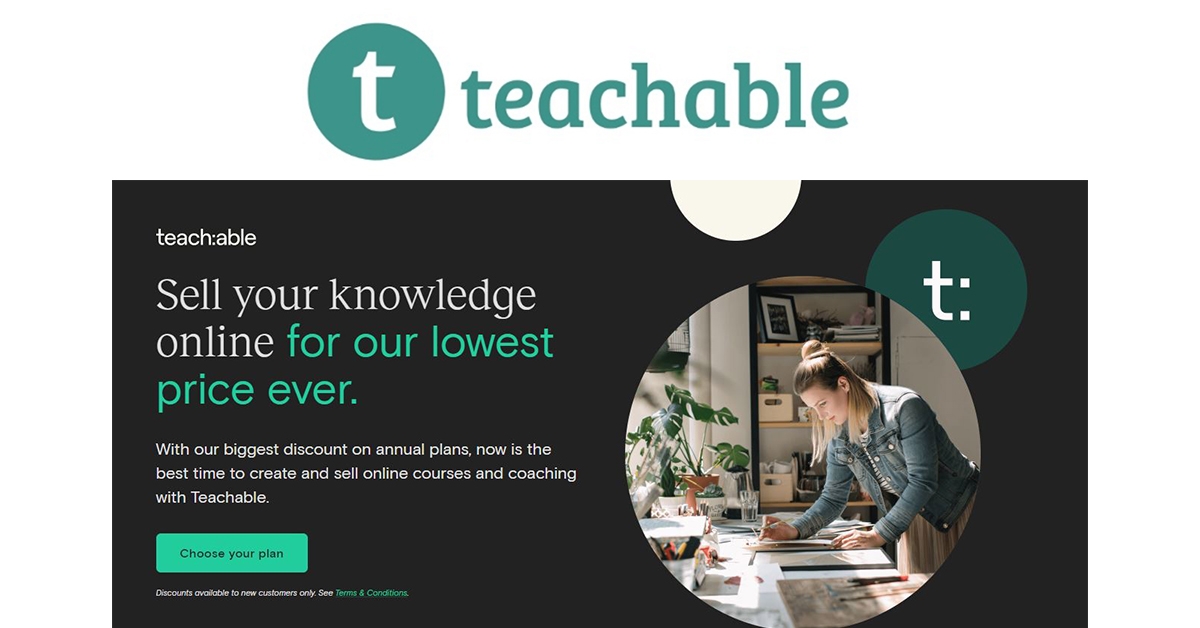 |
| Photo: digitalbvr |
Without a question, Udemy is a fantastic online training resource. However the freedom of the educators is limited. For instance, Udemy does not permit instructors to decide how courses are branded and priced. Additionally, teachers know nothing about their students. Teachable made the most of all these restrictions.
More than 3 million students, 7500 teachers, and 20,000 courses are available on Teachable at this time. The numbers are increasing and improving. There should be a monthly cost for instructors to use this platform.
This eLearning platform offers a free eBook that thoroughly covers topics like course building, video creation, slideshow presentation, etc. in order to draw in potential customers.
Pros:
- It has a simple and easy-to-use course authoring with quiz capabilities.
- It has a landing page editor and blogging capabilities.
- It comes with built-in eCommerce features.
- It includes built-in affiliate, marketing, and sales tools.
- It comes with a built-in email marketing tool.
- It offers an app that is common to all schools.
Cons:
- Its learning/teaching and assessment capabilities are limited.
- It does not support SCORM or TinCan.
- It offers limited customization options on landing pages and branding.
- It has no social or community-building features.
- Its customer support is not very responsive.
- It has limited white-labeling options. e.g.sign ins and emails cannot be white-labeled.
Pricing:
Teachable has the following pricing options:
- Basic plan: $39/month (plus 5% transaction fee)
- Professional plan: $119/month
- Business plan: $299/month
4. Kajabi
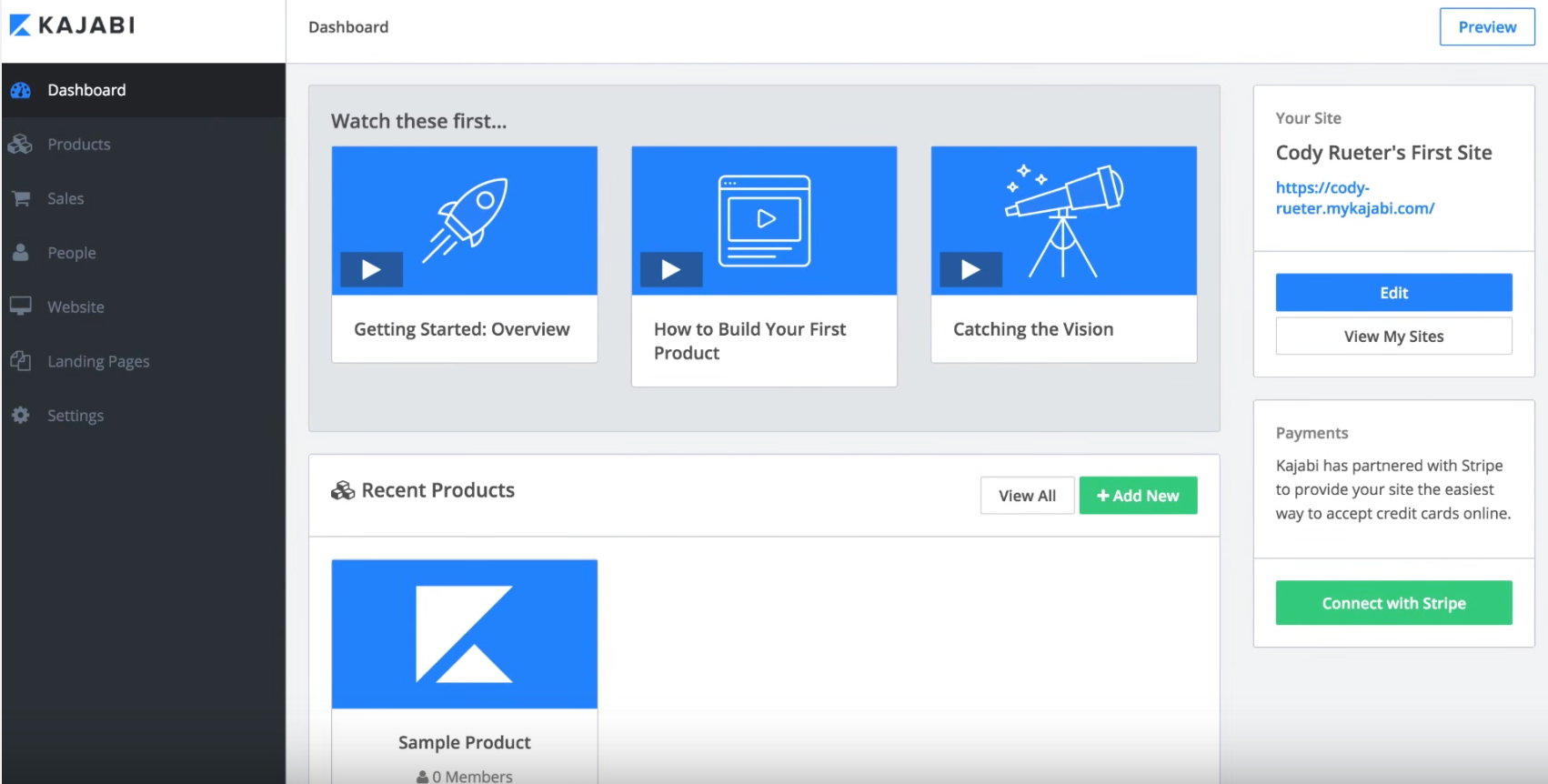 |
| Photo: getapp |
The greatest premium course creator, geared toward the information industry rather than small course creators, is Kajabi.
When it comes to email marketing automation, it's the finest. Pre-sale, pre-webinar, drip course, and upsell emails all require automation, and Kajabi excels at it.
You may design fully automated marketing campaigns and funnels using their "Pipelines" function. These are pre-made lead generating frameworks with copy that has already been optimized for conversions.
Moreover, it has strong course site themes, digital product sales capability, a configurable checkout, and blogging tools.
Overall, it has more integrated tools and capabilities than any other high-end course platform on the list, although it is slightly more expensive.
Pros:
- Best all-in-one software for a true information business.
- Wistia video hosting is excellent.
- Major focus on sales and marketing tools.
- More built-in tools than other platforms.
- Can offer monthly recurring subscriptions.
- Integrated with Stripe and PayPal.
- Big names use Kajabi, including Amy Porterfield.
Cons:
- It can be difficult to set up.
- It has expensive pricing options.
- It offers limited control over website design.
- It doesn’t offer many learning features and focuses more on small digital product sales.
Kajabi pricing is mainly based on the number of courses and active members you have:
- Basic ($119/month): 1 website, 1 admin, 3 products, 3 pipelines, 10,000 contacts, and 1,000 active members.
- Growth ($119/month): 1 website, 10 admins, 15 products, 15 pipelines, 25,000 contacts, 10,000 active members.
- Pro ($319/month): 3 websites, 25 admins, 100 products, 100 pipelines, 100,000 contacts, and 20,000 active members.
5. Podia
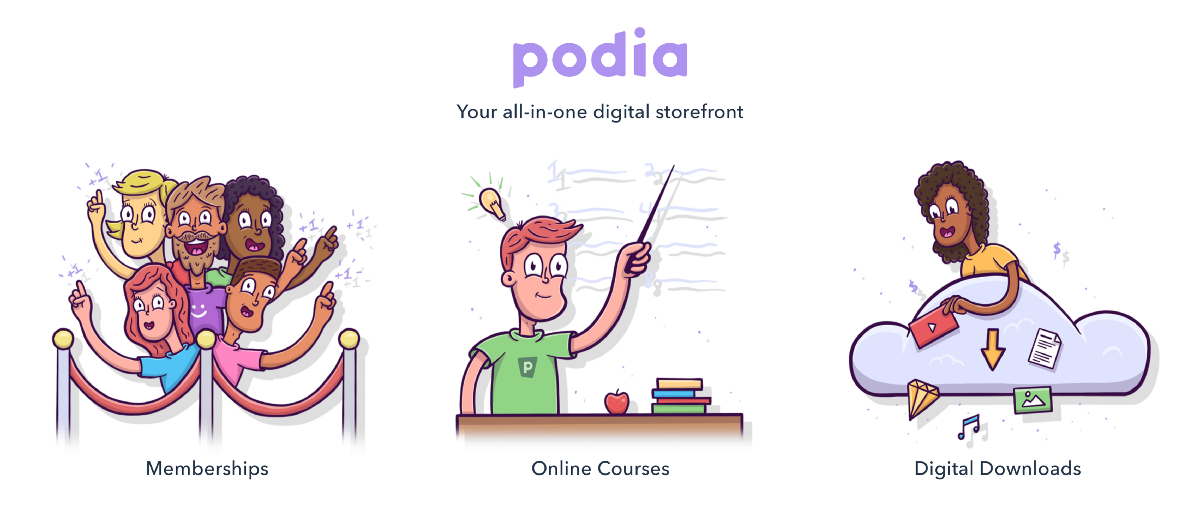 |
| Photo: medium |
Podia is an online learning platform that makes creating and selling online courses, memberships, and other digital products an easy task. Podia offers a rich resources library and free tools for entrepreneurs who want to build their online store, school, or website.
Pros:
- It is very easy and simple to use
- It has sales page customization options.
- It offers affiliate marketing options within the platform.
- It allows you to have your own membership subscription.
Cons:
- It doesn’t offer a community area on the platform.
- It lacks learning tools like grading, assessment/assignments, and certificates.
- It does not support SCORM or TinCan.
- It is very limited in its capabilities, suiting smaller video-based learning, coaching, and downloadables only.
- There are no white-label options.
Pricing:
It offers a 14-day free trial.
Subscription pricing plans include:
- Mover: $39/month
- Shaker: $79/month
 Top 20 Free Online Education Sites In The World Top 20 Free Online Education Sites In The World Online classes are the perfect way for most to continue their education. Here are the top 20 of the best online learning sites that offer ... |
6. WizIQ
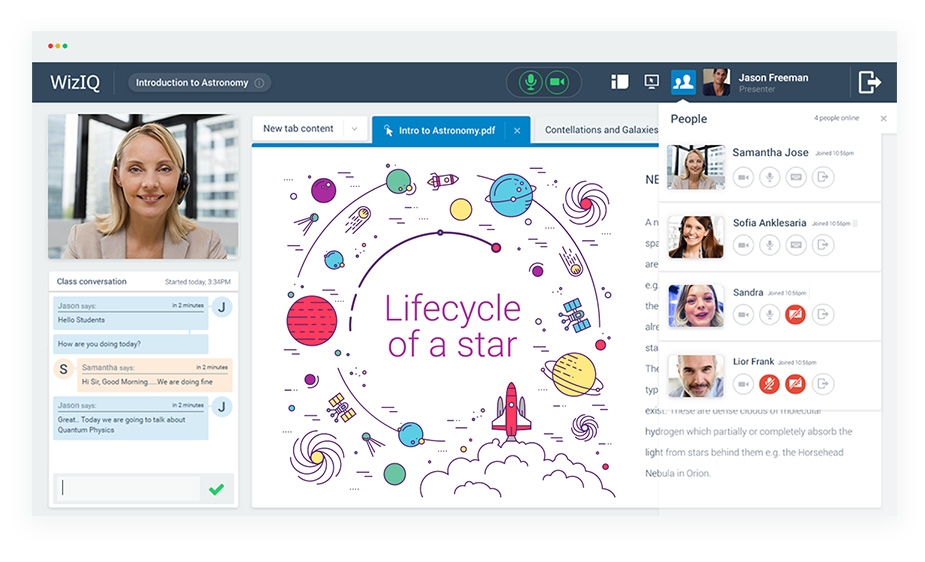 |
| Photo: wiziq |
Another well-known brand in the eLearning sector is WizIQ. For all practical purposes, this webinar delivery software has been used by instructors to give both live and recorded webinars. There are sufficient provisions included, including slides, desktop sharing tools, audio, and video, among others.
The creation of academic course content frequently uses WizIQ. Course creation and publication on the WizIQ online marketplace are both incredibly simple. In addition, WizIQ is renowned for offering a variety of plug-ins for well-liked learning management systems like Moodle, Sakai, etc.
Pros:
- It offers e-learning reporting and analytics.
- It provides the opportunity to teach in a virtual classroom.
- It has a mobile app (mLearning) that is available on Apple and Android
- It comes with course authoring with test and assessment capabilities.
- It has eCommerce features.
- It offers a white label option.
Cons:
- It does not support SCORM or TinCan.
- There are no gamification options.
- Its customer support representatives are difficult to reach after setup (based on online reviews).
7. Academy of Mine
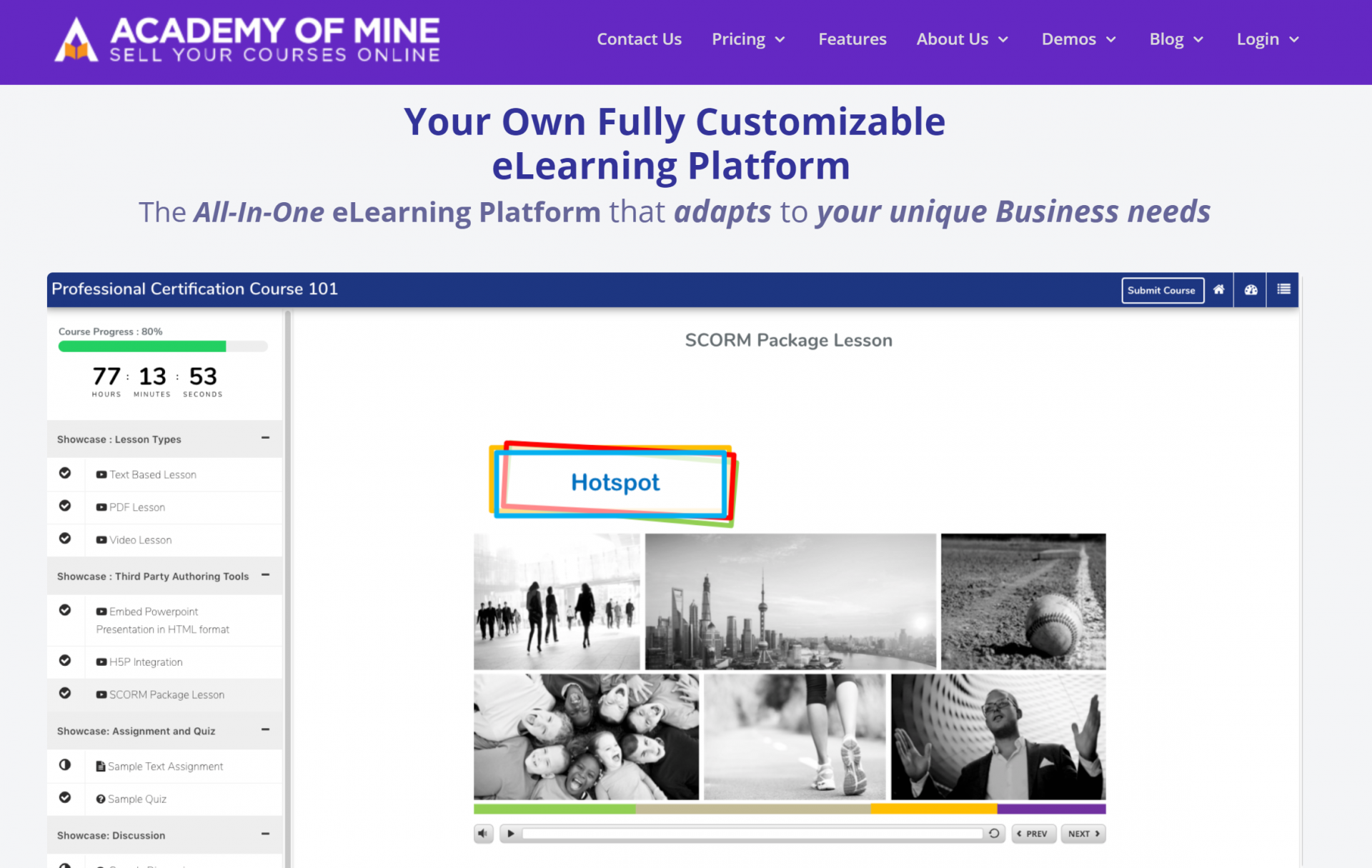 |
| Photo: bloggersideas |
Academy of Mine, as the name implies, enables you to launch your own online school. Academy of Mine gets points for being a drag-and-drop solution that can help you save a lot of time. The administrative interface of this online teaching platform is amazing and filled with features. The learning curve is not too gradual. Having said that, you can take advantage of all of its potent properties by moving up the curve.
Pros:
- It supports SCORM.
- Its support team is very responsive.
- It comes with a flexible website builder.
Cons:
- It needs a lot of work to customize the site.
- It only offers a few video guides to help you learn how to work with the platform.
- Its price is very high.
Pricing:
Academy Of Mine comes with a free trial but has no free version and its pricing starts at $9,997 per year.
8. Educadium
 |
| Largest Online Education |
Educadium is on an ambitious mission to assist entrepreneurs and organizations of all sizes to create, manage and profit from online teaching and training through its EasyCampus platform. It has a plethora of features ranging from course designing to course publishing.
You should check its trial version to get an idea of this online training platform. Subsequently, choose your subscription package.
Pros:
Great support - responsive and helpful. Good price for a startup like mine, and then we can grow together. (Although the jump from $29/250 users to $145/2500 users is a big one - Pretty intuitive.
Cons:
Documentation isn't the greatest. The full Campus guide is a little unwieldy, so you need something in between.
Pricing:
Starting Price: $99.00/month
Free Version: Free Version available.
Free Trial: Free Trial available.
9. CourseCraft
 |
| Photo: workfromhomejourney |
Want to make money from your blog as a business? Examine CourseCraft. Its editor is adaptable, user-friendly, and strong enough to develop a variety of courses. The payment processors Stripe and PayPal are linked with it.
Lessons, quizzes, and forums can easily be created in a couple of minutes. Discounts and promotions may be run by instructors. Students can work together with teachers and peers to build a vast knowledge ecosystem. It provides excellent features for personalized branding.
Pros
- Flexibility and ease of use – the control panel is intuitive, and you receive excellent customer service
- Aesthetics – the editor allows you to make beautiful, professional-looking pages to help you better sell your course
- The platform houses all your media, including PDFs, audio files, images, and downloads
- Easy integration with your website or blog
- Simple and straightforward signup process and you can even do it for free
Cons
- The premium version of CourseCraft is more costly than other competitors
- You can expect occasional software inconveniences, which causes the site to run slower
Pricing:
There are three CourseCraft pricing options: Free, Club, and Society. The free plan gets your course creation process started, but it limits you to 100 participants per course. It also gives you up to 60 minutes of video and up to 2 GB in file uploads for each course. Any limitations within the free pricing package are unlimited in the other two.
10. Mindvalley
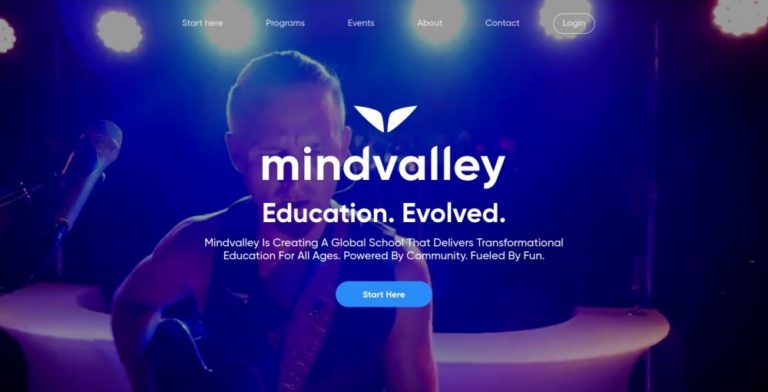 |
| Photo: howtoentrepreneur |
One of the top platforms for personal development and change is Mindvalley. Its objective is to enable students to achieve professional success while also releasing all of their physical, mental, and spiritual potential. The people who desire to quickly enhance many aspects of their lives are most suited for Mindvalley.
In Mindvalley's library, there are more than 50 courses (or quests), all taught by leading authorities in their professions, including CEOs of sizable corporations, best-selling authors, celebrity coaches, well-known therapists and business owners, and prominent international speakers. Several categories have been established for the quests, including Mind, Body, Soul, Career, Entrepreneurship, Relationships, Kids, Teenagers, and Parents, as well as Performance.
Each quest lasts between 30 and 50 days, and finishing the video-based lesson and practice activity each day typically takes less than 20 minutes.
Pros:
- So much content. With 30+ courses that each run about a month, you’ll have a hard time exhausting the content available through Mindvalley.
- Quality of production. Mindvalley courses have very high-gloss videos that are easily accessible from multiple devices. Think Netflix streaming, not random Youtuber.
- Bite-sized content. Mindvalley isn’t for binging. It’s for digesting. I think that the small-sized lessons help everybody learn a little better.
- The Mindvalley Membership is a good deal. The annual subscription takes $1000 worth of classes and turns it into a $499 yearly pass. That’s a good bargain.
Cons:
- You can’t binge it all at once. Some people want to plow through a class in the afternoon. Mindvalley isn’t set up for that type of learning.
- The content can stray from scientific principles. I’m all for being open-minded, but you should be aware that Mindvalley takes the cart off the path from time to time. They sometimes will suggest something is “scientifically proven” without actually proving it. This frustrated me.
- Mindvalley is expensive. Yes, having an annual membership really makes the whole platform much more affordable than buying singles classes, but it’s a lot higher than others like MasterClass or Skillshare.
Price:
Mindvalley All Access Membership(includes unlimited access to 50+ courses) - $499/year
Mindvalley Membership Pro ( includes everything that Mindvalley Membership does plus Exclusive Peer Mastermind Groups and Monthly Group Coaching with Vishen and Special Guests) - $999/year
Mindvalley Individual Courses - $199-$499/quest
Benefits of Online LearningIt’s easy to see how learning online can be advantageous, offering a number of benefits including:
Like all things, there are potential downsides as well depending on your unique situation, and many wonder about the differences between face-to-face and online learning. |
 What Are Advantages & Disadvantages of Online Learning? What Are Advantages & Disadvantages of Online Learning? Online learning is a part of many institutions' course offerings around the world. But, do you know the advantages and disadvantages of online learning? |
 What Is Online Education and Changes from The Covid-19 Pandemic? What Is Online Education and Changes from The Covid-19 Pandemic? If you are new to online learning, you might be wondering what it is and how it works and how does it changes from the ... |
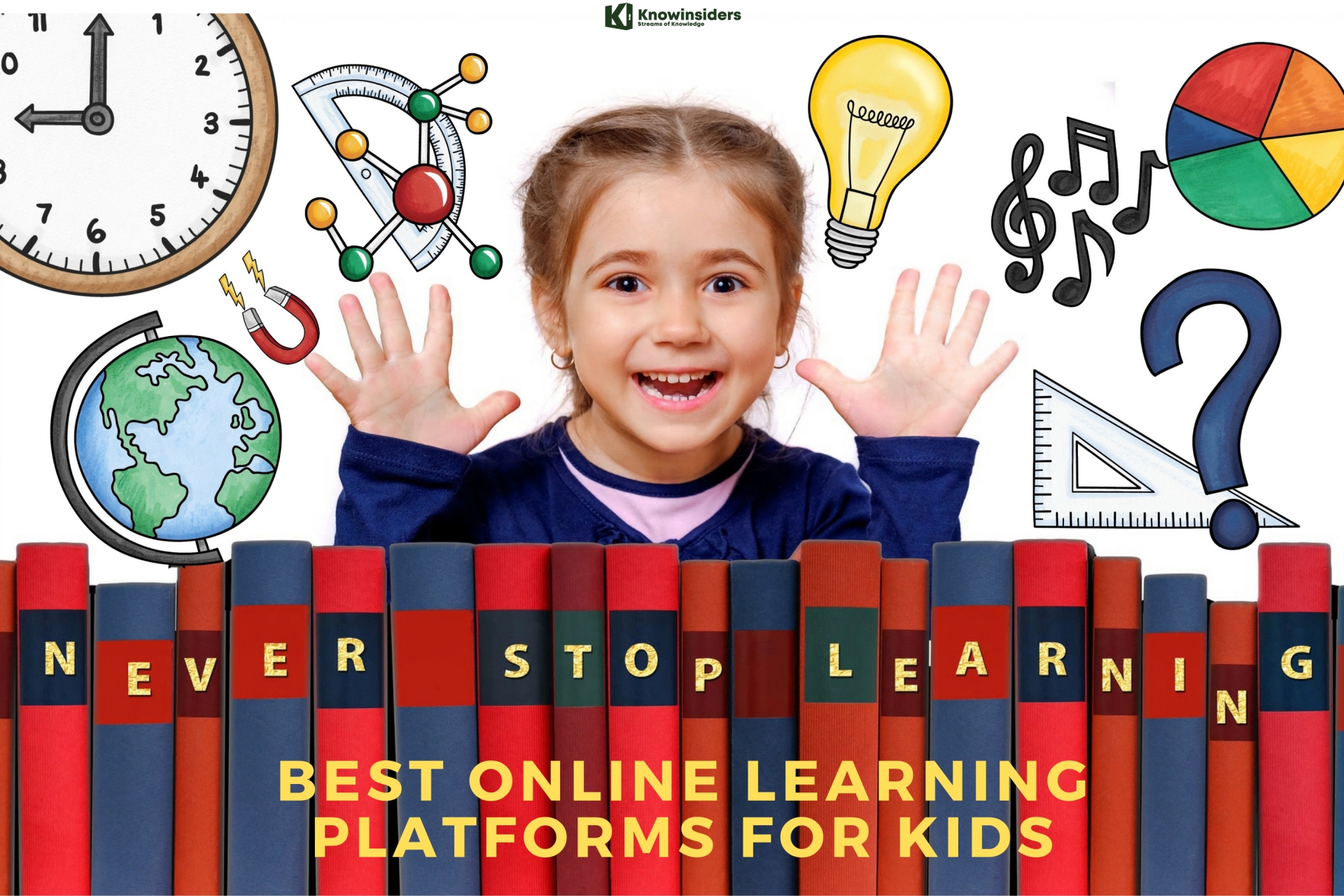 10 Best Online Learning Platforms For Kids In The World 10 Best Online Learning Platforms For Kids In The World Onlien learning is becoming popular in the time of COVID-19. What are the best online learning platforms for your kids in the world? |


























